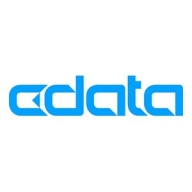

Find out what your peers are saying about Microsoft, Informatica, Talend and others in Data Integration.

Azure Data Factory efficiently manages and integrates data from various sources, enabling seamless movement and transformation across platforms. Its valuable features include seamless integration with Azure services, handling large data volumes, flexible transformation, user-friendly interface, extensive connectors, and scalability. Users have experienced improved team performance, workflow simplification, enhanced collaboration, streamlined processes, and boosted productivity.
CD-Data is a data publishing company with incorporates GIS technology to display parcel ownership data in a variety of ways. CD-Data has a unique relationship with the California county Assessors and receives data daily from most counties. The Navigator product is a statewide GIS which utilized the ownership data in multiple disciplines such as simple parcel searches, buffer searches, fire hazard layer, soils report layer (on a per parcel basis).
We monitor all Data Integration reviews to prevent fraudulent reviews and keep review quality high. We do not post reviews by company employees or direct competitors. We validate each review for authenticity via cross-reference with LinkedIn, and personal follow-up with the reviewer when necessary.